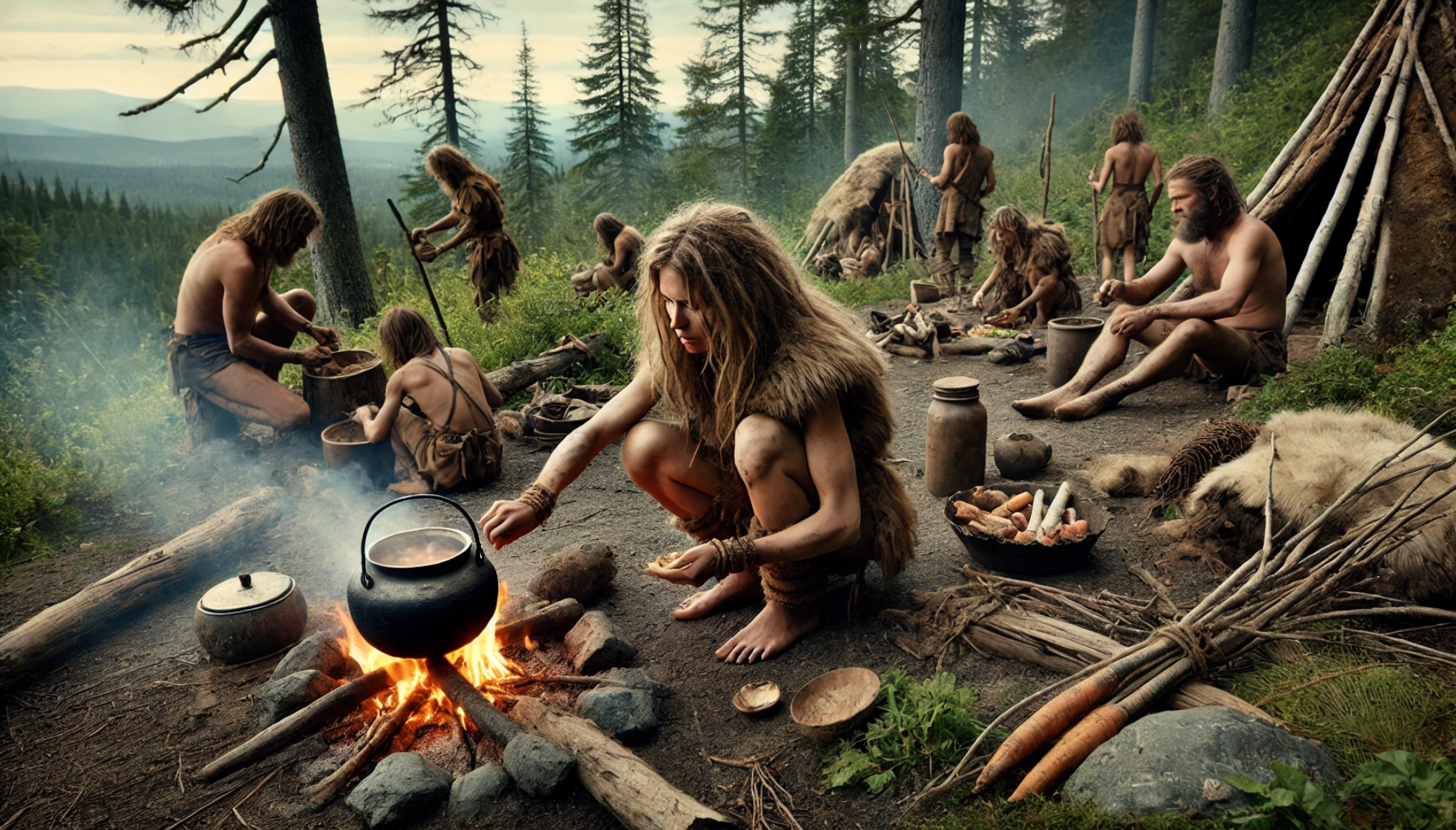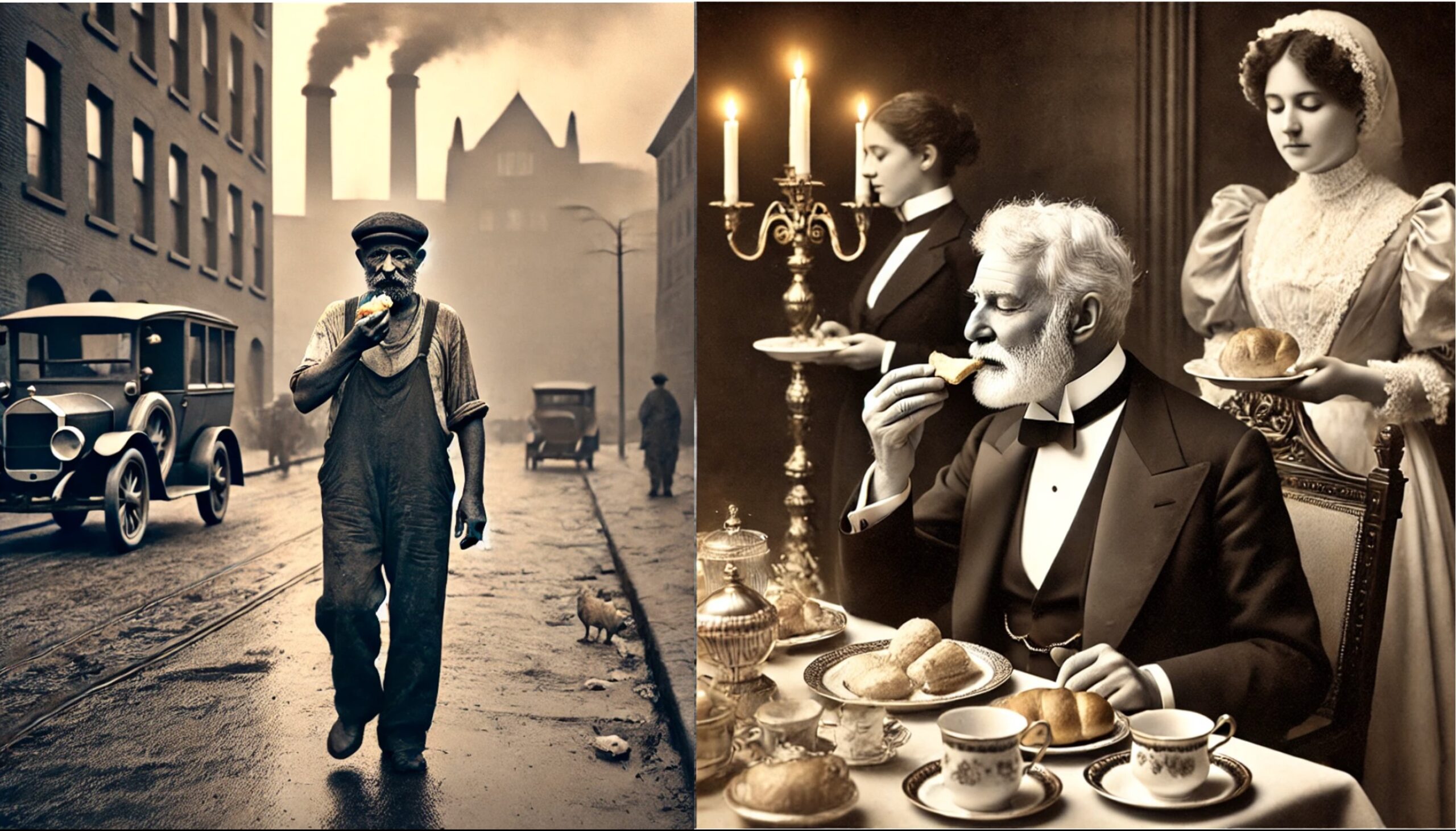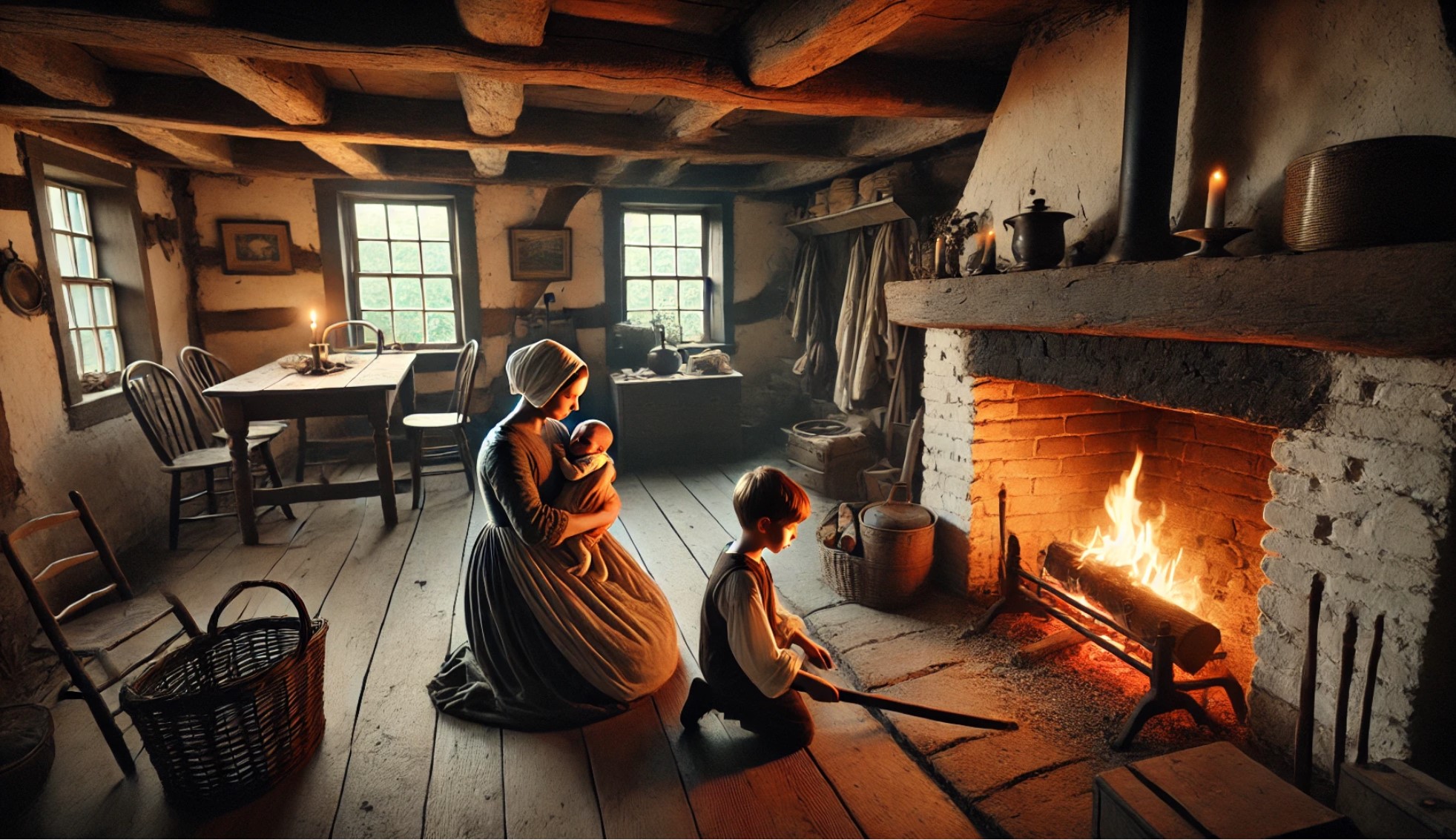Breakfast in Civilization Part I: Hunter Gather

This is the first in a series of posts that use breakfast to illustrate how profoundly civilization’s advance has improved our lives. Through the use of reason, and in particular our ability to collaborate in larger and larger groups, aka collective reason, we succeeded where the Neanderthals failed and went on to thrive like no other species. Through the development of knowledge via reason, we flipped the script on the biosphere’s brutal genetic quality control program to thrive in comfort rather than just survive while suffering. One thing to keep in mind as you read these posts is that as with any historical study, there is a inverse relationship between how far back you go and the amount of supporting evidence that’s available. While the first hunter-gather story might raise objections from some historians, the more contemporary the accounts get, the more supported and documented they become. I’m confident, however, that the dramatic progress these stories highlight in things like infant mortality and extreme poverty and how supernatural beliefs helped people to endure suffering and hardship represent the consensus position among historians, anthropologists, and archaeologists.
Another thing to notice in these stories is the huge milestones in the arc of human progress, specifically the agricultural, industrial and globalization/information revolutions. While each of these events marked a point where overall human progress took a big turn upwards, in each case life became much worse for many people in the early stages of these revolutions. We’ll begin our breakfast journey with a woman who was part of a hunter gather tribe in what is now Germany. Future posts will include a farming and noble family during Akhenaten’s reign 3,300 years ago, a woman on a family farm in the US around 1800, a steel worker and the owner of the mill in the US around 1900, and finally the breakfast routines of three contemporary women.
* * *
She wakes up with a start at the sound of a stick cracking. Thinking the noise might be a predator, she instinctively pulls the six-month old baby sleeping next to her close. Upon realizing it’s her mate tending the fire they built last night, she relaxes. The previous day their tribe, a group of eight families, had walked from the early morning, gathering grasses, berries and fruit, until the bird of fire flew high enough in the sky to make walking difficult. She, her mate and their three surviving children, along with the other families, settled in a group of large trees. After napping in the shade, they set out to kill some game to eat. After a few hours of sneaking into the bush with three of the other women, two of whom were carrying infants as she was, to scare animals into the open where their mates waited with spears and rock-throwers, they managed to kill three rabbits and four rats. At one point they managed to flush a deer into the open, which would have provided enough meat for several days, but the spears missed their mark, and the stones weren’t enough to bring the deer down. Between their smaller kills and the fish caught by their tribemates in a nearby stream, they still had a satisfying evening meal. There would be another hunt today and she hoped the deer spirit would bless them.
Their tribe’s seer told her that the spirits of smaller animals, like those rabbits and rats they killed, favored them, as did the Goddess of the waters whose fish fed them when they were unable to kill larger game. For those less favored, “the others”, it was big game or hunger. As she rises, with the still sleeping infant in her arms, she thinks about how the others travel in smaller groups with their large, awkward clubs and spears. Even though their tribes co-existed peacefully, and a woman from their tribe had even mated with an other and now lived with them, they made her uncomfortable, even fearful. Surely the superior weapons and hunting techniques the spirits denied the others while blessing her tribe proved who was truly favored.
She climbs up the hill next to their camp to pick more of the berries they found yesterday. Along with some of the grasses and fruit they collected, and fish they caught, they’ll have a morning meal that will fill their bellies. As she plucks berries from a bush and drops them into the small leather pouch she made from the skin of a deer, she feels a familiar pang of loss. She and her mate had four other children, two of whom died before their first cycle of seasons, another who was killed at four by a sickness that swept through their tribe and their son, her boy, who recovered from the same illness but became too weak to keep up and had to be abandoned. What had happened to him? She could still hear his frail cries to her as they walked away, leaving him sitting against the trunk of a tree. She prayed the spirits welcomed him quickly as she couldn’t stand the idea that he suffered for long. The seer told her that she would see him again, along with her other children and her ancestors, when the spirits welcomed her. This thought, this hope, kept her going.




